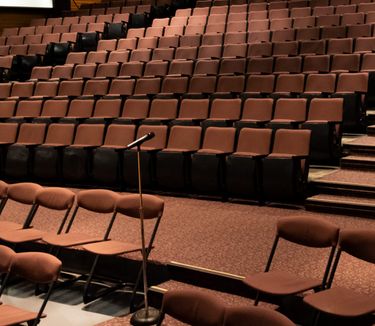
Rachel Downey is a third year PhD student studying Clinical Psychology at Concordia University. Her research focuses on how different forms of interventions (i.e., executive function training, aerobic exercise, balance and coordination training) can improve multi-tasking behaviour in older adults. Specifically, she is interested in better understanding methods to improve cognitive-motor dual-task performance (i.e., walking while doing a cognitive task) and how individual characteristics, such as age, hearing capacity, and baseline cognitive and physical functioning affect training efficacy.
Sessions in which Rachel Downey participates
Wednesday 12 May, 2021
Sessions in which Rachel Downey attends
Monday 10 May, 2021
In this talk, we will present our recent developments in the context of Personalized functional Near Infra-Red Spectroscopy (fNIRS) investigations, which consist in optimizing placement of fNIRS sources and detectors on the head of the participant in order to maximize fNIRS sensitivity to some targeted brain regions, while allowing accurate local 3D reconstructions of fluctuations of oxy-hemoglobin and deoxy-hemoglobin along the cortical surface. Personalized fNIRS investigations could be ...
Near-Infrared Spectroscopy (NIRS) and diffuse correlation spectroscopy (DCS) are two established techniques which allow monitoring brain health non-invasively. With the foundation of our seminal NIRS-DCS work on neonates, we are developing novel devices and approaches to better quantify cerebral blood oxygenation, cerebral blood flow and oxygen metabolism in the clinical setting both in children and adults. In particular, in the last few years we have made substantial progress on D...
Wednesday 12 May, 2021
Regional brain function is determined by its local structure and connectivity. I will present work from our lab that strives to quantify connectivity for applications in healthy development and understanding the impact of disease - focusing on understanding normative cerebellar connectivity and quantifying the impact of stroke. I will also touch on some recent work linking interhemispheric functional connectivity to bimanual motor control in older adults.
With aging, there are declines in sensorimotor functions such as fine motor control, gait and balance. Moreover, the largest age differences in brain structure are observed in the motor and somatosensory cortices. A key question of interest is why some individuals are more resilient than others to these functional declines. I will describe my findings showing that, in some cases, individual differences in sensorimotor system structure and function are associated with motor performance meas...
Safe mobility is vital to the functional independence of older adults. Executive functions such as working memory updating and dividing attention play an increasingly important role in supporting mobility in old age. This talk describes recent studies that examine the influence of cognitive and sensory challenges to complex motor performance. Featured are recent cognitive training and exercise intervention studies designed to target executive functions to improve mobility and cognition in old...
Disorders of gait and cognition are central to many age related conditions and diseases. While there are medications available to treat some of these disorders, they have significant side effects and limited effectiveness. A better understanding of the inter-relationship between motor and cognitive function in aging may help guide the development of new therapeutic approaches for conditions such as frailty, mobility disability and dementia. In this talk, I will discuss non-pharmacological ...







